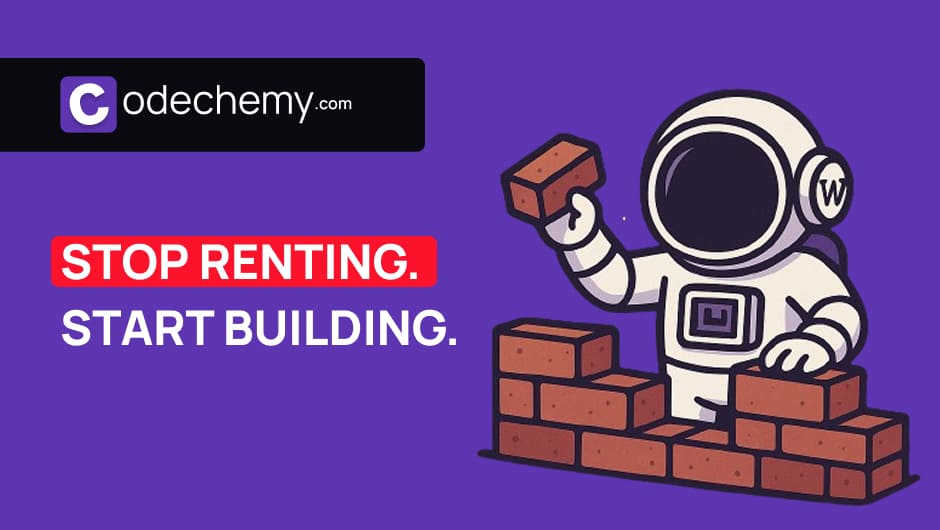Is WordPress good for small business? If you care about SEO, scalability, and actually owning your website — the answer is a loud, strategic yes.
But let’s back that up.
If you’re a small business owner trying to figure out whether to go with WordPress, Shopify, Wix, or some “marketing agency’s custom solution”, this article is for you.
We’re not going to sugarcoat anything. We’re going to tell you:
-
What WordPress can do (and what it can’t)
-
Why it still dominates in 2025
-
When you should avoid it
-
How it compares to Shopify and others
-
How small businesses are using it to grow traffic, revenue, and credibility
Let’s get real.
What Is WordPress — and Why Does It Still Matter?
WordPress is not just a blogging platform. It powers over 43% of all websites online.
(Source: W3Techs 2025)
That includes:
-
Small business websites
-
eCommerce stores
-
Enterprise portals
-
Lead generation pages
-
Online courses and memberships
So when people ask: “Is WordPress still relevant?”
They’re usually comparing it to drag-and-drop builders or hosted platforms.
But here’s what those comparisons miss:
| Platform | Control | SEO Power | Scalability | Cost Over Time | Ownership |
|---|---|---|---|---|---|
| WordPress | ✅ Full | ⭐⭐⭐⭐⭐ | ⭐⭐⭐⭐ | 🔥 Very Low | ✅ 100% |
| Shopify | ❌ Limited | ⭐⭐⭐⭐ | ⭐⭐⭐ | 💰 High | ❌ Partial |
| Wix | ❌ None | ⭐⭐ | ❌ Weak | 💰 Medium | ❌ Closed |
| Squarespace | ❌ | ⭐⭐ | ❌ | 💰 Medium | ❌ Closed |
WordPress for Business Website: The Core Advantages
Let’s break it down — no fluff.
1. Full Ownership
On WordPress, you own your site. No lock-in, no “pay to keep it live” hostage games. You can move hosts, export content, customize anything.
2. Scalable from Day 1 to $10M+
Start with a $500 brochure site. Scale it into an eCommerce platform, LMS, lead funnel, whatever. No need to “migrate” when you grow.
3. Built-in SEO Power
From metadata control to sitemap indexing and schema, WordPress is made for SEO. Especially with tools like RankMath or Yoast + custom speed optimization.
4. Performance (If Built Right)
WordPress gets a bad rep for speed — but it’s almost always the designer’s fault. With lightweight themes like Hello or custom builds + speed optimization, you can hit 90+ on PageSpeed easily.
5. Integration-Friendly
Booking systems, payment gateways, CRMs, automation tools — it all connects. With no-code, low-code, or full code.
❌ When NOT to Use WordPress
WordPress isn’t a golden hammer. There are times when it’s not the best tool.
Avoid WordPress if:
-
You want a super-simple one-page site with no customization
-
You have zero interest in touching the backend
-
You need out-of-the-box POS/eCommerce (like retail with inventory sync)
-
You’re allergic to tech and have zero support
In those cases, Shopify or Wix might make more sense — but long-term, you’ll pay more and grow slower.
WordPress vs Shopify for Small Business
Let’s address the classic eCommerce debate:
| Feature | WordPress + WooCommerce | Shopify |
|---|---|---|
| Cost (Long-Term) | 🔥 Lower | 💰 Higher |
| SEO Capabilities | ⭐⭐⭐⭐⭐ | ⭐⭐⭐⭐ |
| Flexibility | 🧠 Total Control | ❌ Limited |
| Design Freedom | 🎨 Unlimited | 🧱 Template-based |
| Ownership | ✅ You own it | ❌ Shopify controls |
| Monthly Fees | ❌ None (except hosting) | ✅ Starts at $39/mo |
Verdict: If you care about SEO, control, and saving money over time — WordPress wins.
Stats: Why Small Business Owners Choose WordPress
According to a 2024 survey by Kinsta:
-
72% of small businesses using WordPress report greater flexibility vs closed platforms
-
68% say SEO results were better after migrating from Wix/Squarespace
-
81% of agencies still choose WordPress for small business clients
And in our own agency (Codechemy), clients who switch to WordPress with proper design + speed optimization see:
-
+38% improvement in load time
-
+27% better lead generation
-
+110% increase in organic traffic (after 3–4 months)
Real-World Examples (Anecdotes)
-
Local law firm – came from Wix → WordPress + Elementor → PageSpeed 96, +3x call volume in 2 months.
-
SaaS startup – ditched Webflow due to limits → rebuilt in WordPress with dynamic blog and custom layout = +70% organic.
-
Beauty studio – paid $1,800 for a slow Shopify site. We rebuilt in WordPress for half the price, cut load time in half, and doubled bookings.
What It Actually Costs (And What You Should Pay For)
| Service | Avg Price (2025) | What You Should Expect |
|---|---|---|
| Basic WP Site (3 pages) | $500–$1,000 | Fast, branded, SEO-ready |
| Business Website (5–8 pg) | $1,000–$3,000 | Strategy, UX, lead gen integration |
| eCommerce WordPress Site | $2,000–$5,000+ | WooCommerce, optimization, product UX |
| Codechemy Starter Site | $490 flat 🔥 | Elementor-based, optimized, built to convert |
💡 If someone offers you a WordPress site for $200, run. That’s not a website. That’s a liability.
So, Is WordPress Good for Small Business?
Yes — if you take it seriously.
WordPress gives you:
-
Full ownership
-
Infinite flexibility
-
SEO dominance
-
Scalability
-
Lower long-term cost
-
Total brand control
But you also need:
-
A real designer (not a template switcher)
-
Performance optimization
-
A focus on UX, not just “style”
-
Strategic content planning
Final Verdict
WordPress isn’t perfect.
But for small business owners who care about owning their online presence, driving traffic, and converting visitors — WordPress is the best platform in 2025.
Don’t let anyone talk you into a shiny closed system when what you need is freedom, speed, and long-term ROI.
Looking for a strategic, performance-driven WordPress website that actually gets results?
